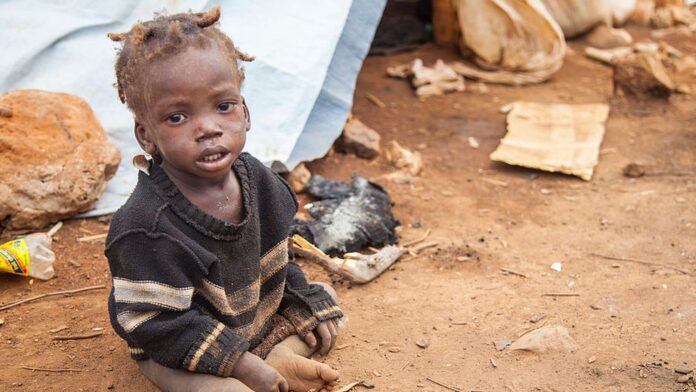The dire humanitarian situation in Haiti, exacerbated by weeks of violent gang attacks, has raised concerns over the fate of countless children, warned Catherine Russell, the executive director of UNICEF, on Tuesday. Russell highlighted the imminent threat of severe acute malnutrition facing more than 125,000 children in Haiti, stressing that the ongoing violence and instability have far-reaching consequences beyond immediate safety concerns.
According to a report by the Integrated Food Security Phase Classification (IPC), nearly five million Haitians, representing almost half of the country’s population, have been plunged into “high levels of acute food insecurity” due to the surge in gang-related violence.
Russell emphasized the urgent need for basic security measures to enable the delivery of life-saving services and humanitarian aid to vulnerable children and families. She underscored that thousands of children are teetering on the brink of malnutrition, awaiting assistance that hinges on the cessation of violence and the reopening of critical infrastructure such as roads and hospitals.
The ongoing security crisis has not only impeded aid deliveries but has also weakened Haiti’s healthcare system, amplifying the threat to children’s lives, as outlined by UNICEF. The agency stressed the importance of restoring law and order to Haiti’s streets to safeguard essential facilities such as schools, hospitals, and humanitarian spaces.
Haiti has been rocked by acute violence since late February, sparked by coordinated attacks by gangs demanding the resignation of Prime Minister Ariel Henry. While Henry has agreed to step aside pending the formation of an interim government, the process has been marred by political disagreements, prolonging the country’s turmoil.
As Haiti grapples with escalating violence and a deepening humanitarian crisis, urgent action is needed to protect the most vulnerable, particularly children, and restore stability to the nation’s streets.
Key Points:
- Humanitarian Crisis in Haiti: UNICEF warns of dire consequences for children in violence-stricken Haiti due to severe acute malnutrition, exacerbated by weeks of gang attacks.
- Imminent Threat to Children: Over 125,000 children are at risk of severe acute malnutrition, with violence and instability amplifying the crisis beyond immediate safety concerns.
- Food Insecurity: Nearly half of Haiti’s population, approximately five million people, faces acute food insecurity as a result of escalating gang-related violence.
- Urgent Need for Security: Basic security measures are essential to enable the delivery of life-saving services and humanitarian aid to vulnerable children and families in Haiti.
- Impact on Healthcare: The ongoing security crisis has weakened Haiti’s healthcare system, posing a significant threat to the lives of children in need of medical assistance.
- Call for Restoring Order: UNICEF emphasizes the importance of restoring law and order to Haiti’s streets to safeguard essential facilities like schools, hospitals, and humanitarian spaces.
- Political Turmoil: Haiti has been rocked by acute violence since late February, triggered by coordinated attacks by gangs demanding the resignation of Prime Minister Ariel Henry.
- Interim Government Formation: Prime Minister Henry has agreed to step aside pending the formation of an interim government, although political disagreements have hindered the process, prolonging the country’s turmoil.



